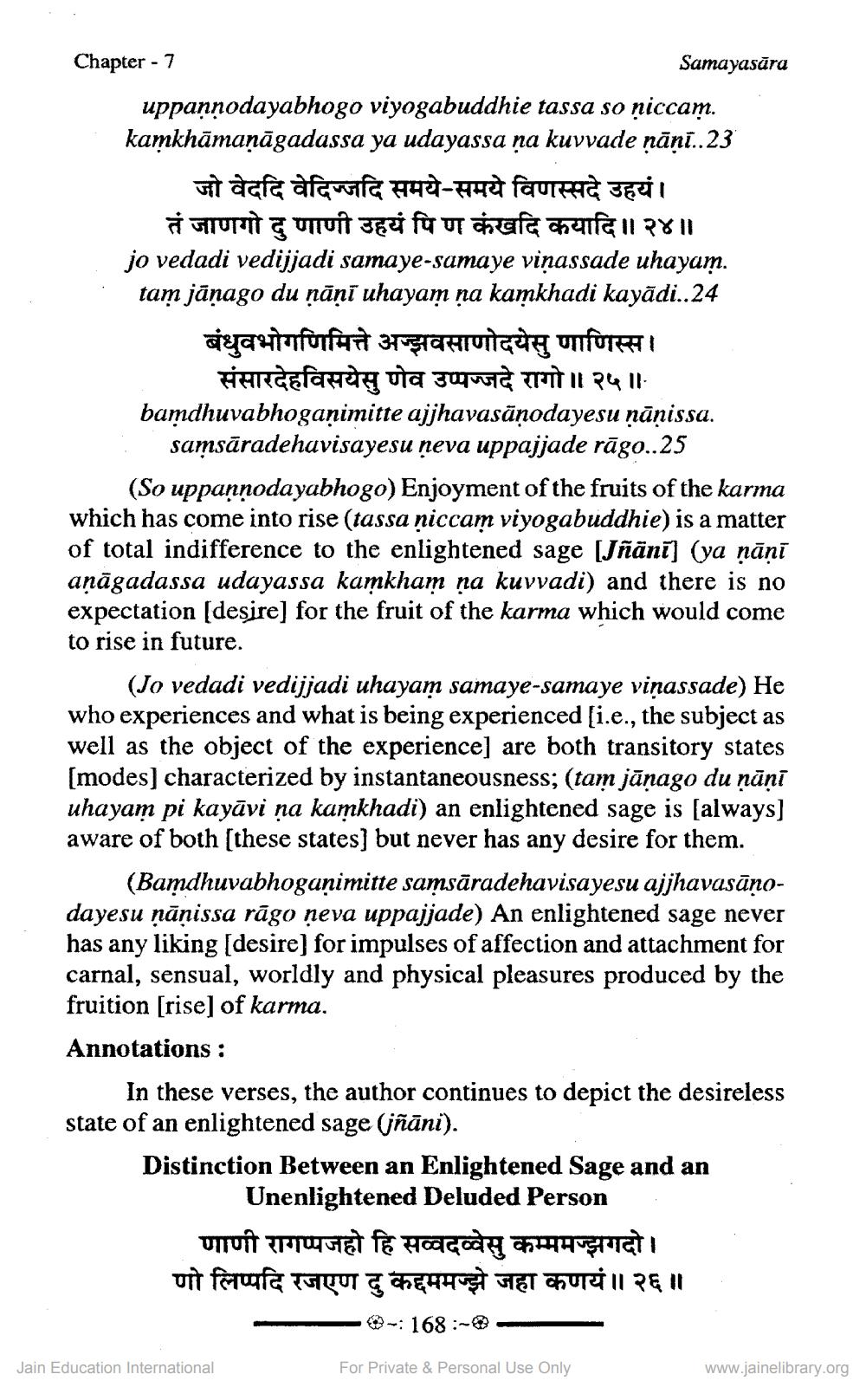________________
Chapter - 7
Samayasăra uppannodayabhogo viyogabuddhie tassa so ņiccam. kamkhāmaņāgadassa ya udayassa na kuvvade nāņi..23
जो वेददि वेदिज्जदि समये-समये विणस्सदे उहयं । तं जाणगो दुणाणी उहयं पि ण कंखदि कयादि॥२४॥ jo vedadi vedijjadi samaye-samaye vinassade uhayam. tam jāņago du nāņi uhayam na kamkhadi kayādi..24
बंधुवभोगणिमित्ते अज्झवसाणोदयेसु णाणिस्स।
संसारदेहविसयेसु णेव उप्पज्जदे रागो॥२५॥ bamdhuvabhoganimitte ajjhavasāņodayesu ņāņissa.
samsāradehavisayesu ņeva uppajjade rāgo..25
(So uppannodayabhogo) Enjoyment of the fruits of the karma which has come into rise (tassa ņiccam viyogabuddhie) is a matter of total indifference to the enlightened sage (Jñānī] (ya ņāņi aņāgadassa udayassa kamkham na kuvvadi) and there is no expectation (desire) for the fruit of the karma which would come to rise in future.
(Jo vedadi vedijjadi uhayam samaye-samaye viņassade) He who experiences and what is being experienced [i.e., the subject as well as the object of the experience] are both transitory states (modes] characterized by instantaneousness; (tam jānago du ņāņi uhayam pi kayāvi na kamkhadi) an enlightened sage is (always] aware of both (these states) but never has any desire for them.
(Bamdhuvabhoganimitte samsāradehavisayesu ajjhavasānodayesu ņānissa rāgo ņeva uppajjade) An enlightened sage never has any liking (desire) for impulses of affection and attachment for carnal, sensual, worldly and physical pleasures produced by the fruition [rise) of karma. Annotations :
In these verses, the author continues to depict the desireless state of an enlightened sage (jñāni). Distinction Between an Enlightened Sage and an
Unenlightened Deluded Person णाणी रागप्पजहो हि सव्वदव्वेसु कम्ममज्झगदो। णो लिप्पदि रजएण दु कद्दममाझे जहा कणयं॥२६॥
-*-: 168:- -
Jain Education International
For Private & Personal Use Only
www.jainelibrary.org




